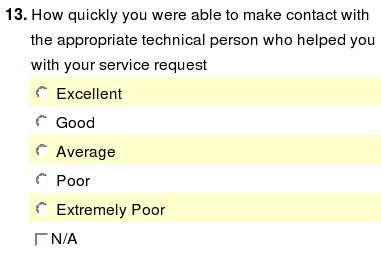Wireless device support — and indeed, wireless reliability — has been frankly awful in Linux up to this point. Even among the devices that work (at least some of the time), there are frequent problems. For example, my IBM Thinkpad T42 laptop comes with an IPW2200BG adapter that mostly works — except after suspend, when it will refuse to function unless the driver is unloaded and reloaded. I’m using NetworkManager to "magically" manage my network connection; when it works, it works fabulously, but there are no docs. None. I challenge you to try and find a man page or any scrap of documentation about NetworkManager anywhere on the Internet.
At least on the driver side there might be some hope on the horizon. Devicescape, a WiFi software stack specialist, has just released their "Advanced Datapath" IEEE 802.11 driver stack under an open source license, and several kernel developers are trying to get it integrated into the Linux kernel. Of course, as with all integrations, this won’t happen overnight, but when it does, many wireless features such as WPA, WEP, software MAC, and so on that currently require add-ons like the userland wpa_supplicant for WPA could be directly run by this stack.
I’m looking forward to the day when I don’t have to do this magic incantation to get wireless working after suspend:
# /etc/init.d/NetworkManager stop
# /sbin/modprobe -r ipw2200
# /sbin/modprobe ipw2200
# sleep 10
# /etc/init.d/NetworkManager start
A complete non-sequitur: survey questions that make no sense.

 Being both a transit nerd and an iPhone user, I’ve tried out a bunch of iPhone apps to help me make the best of my New York City transit experience. There are 51 iPhone apps listed on the MTA’s website, but there’s little indication which ones are good and which are bad.
Being both a transit nerd and an iPhone user, I’ve tried out a bunch of iPhone apps to help me make the best of my New York City transit experience. There are 51 iPhone apps listed on the MTA’s website, but there’s little indication which ones are good and which are bad.